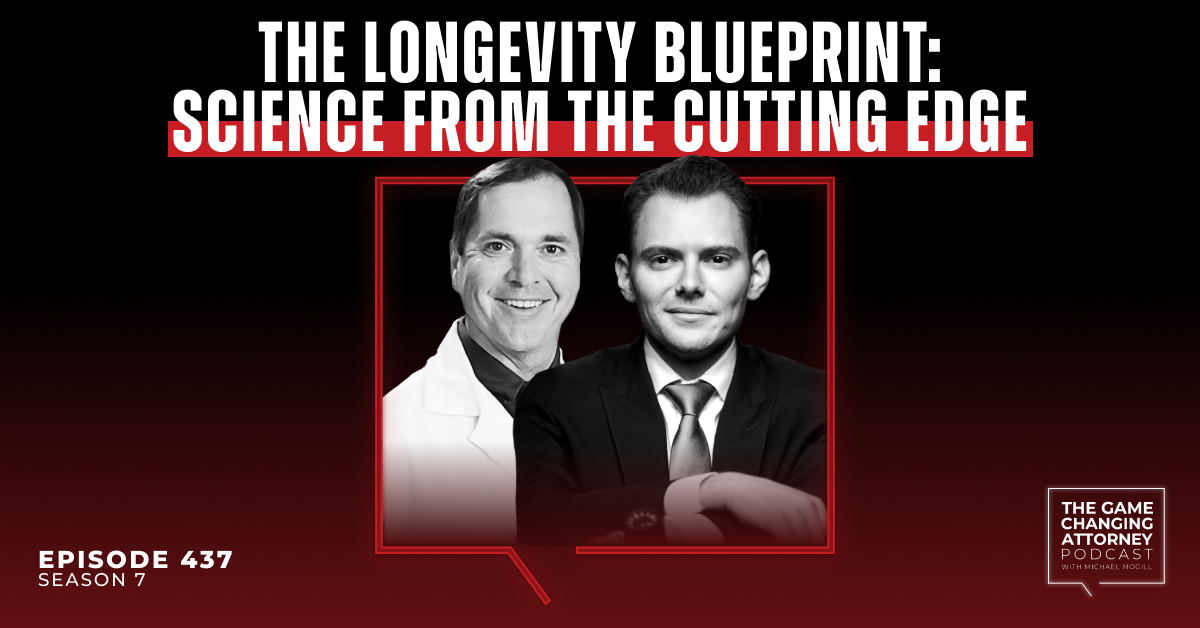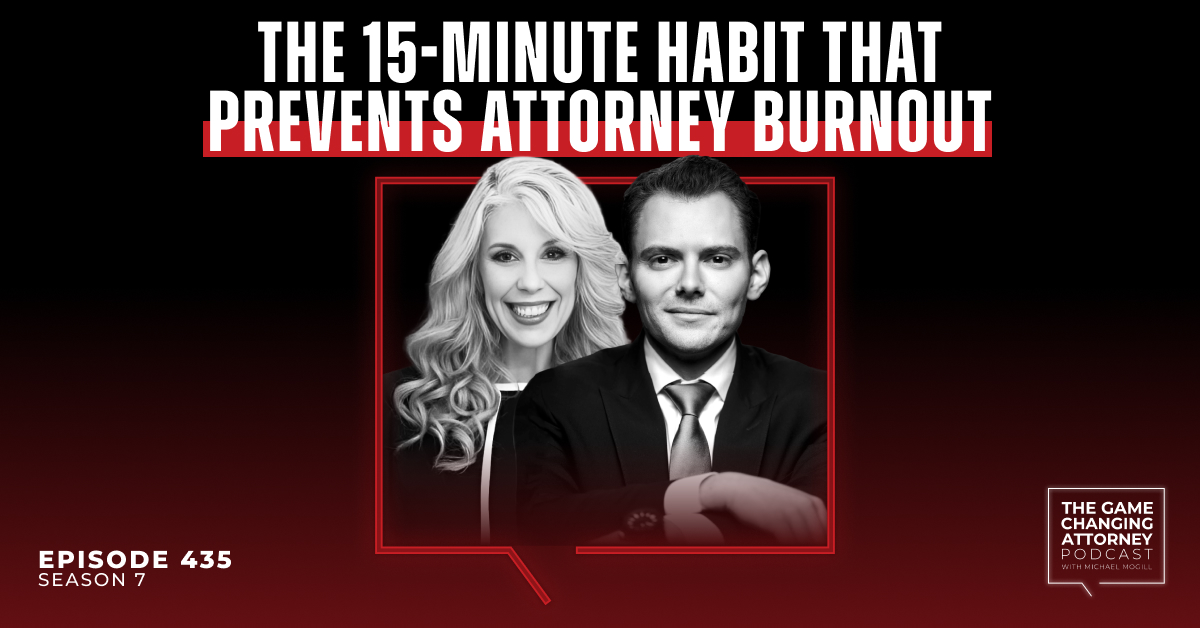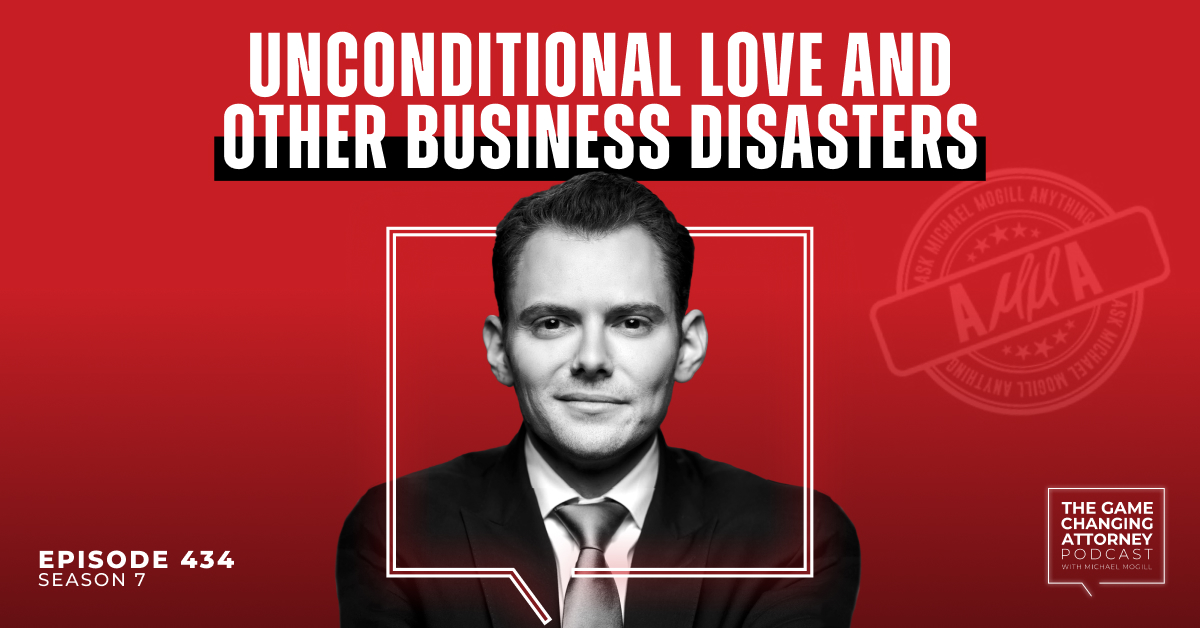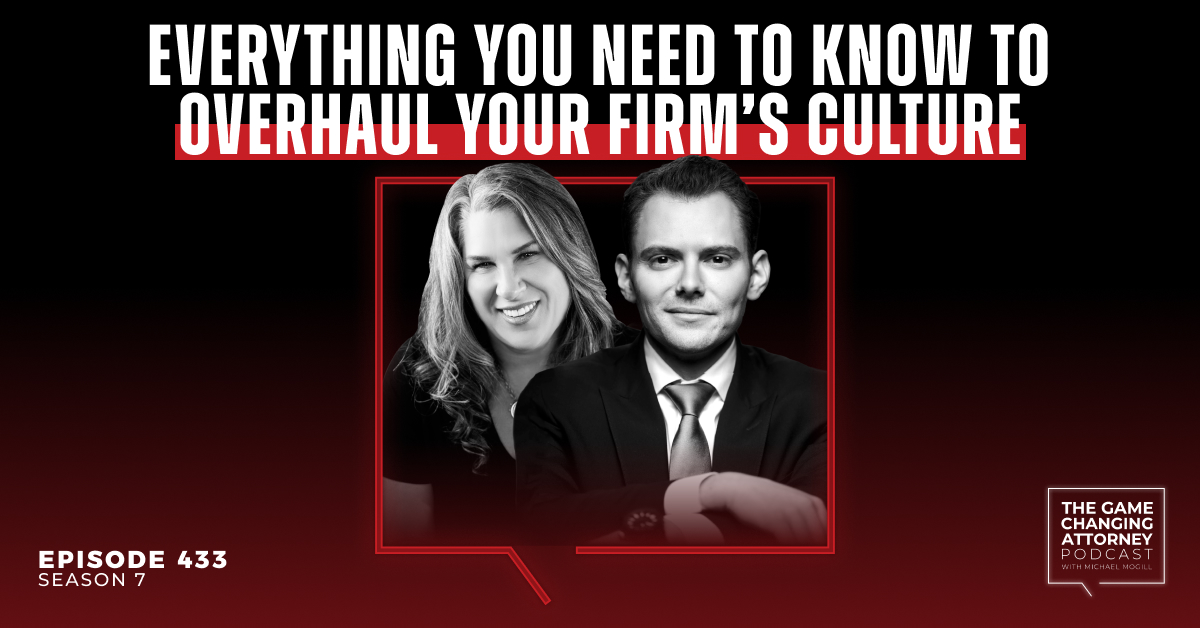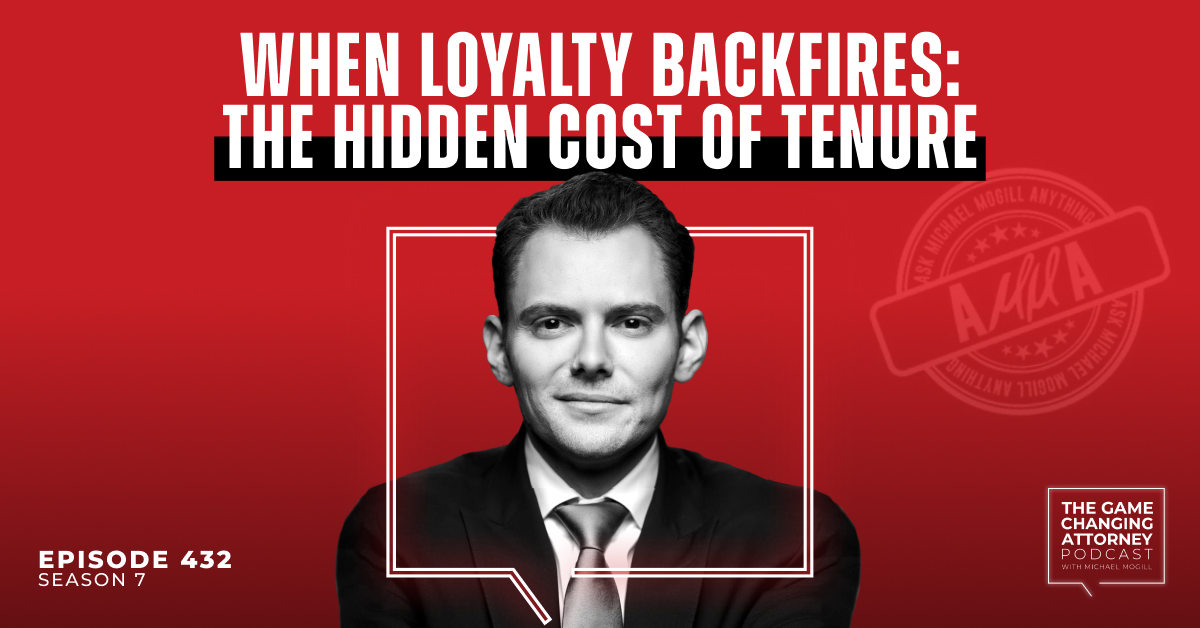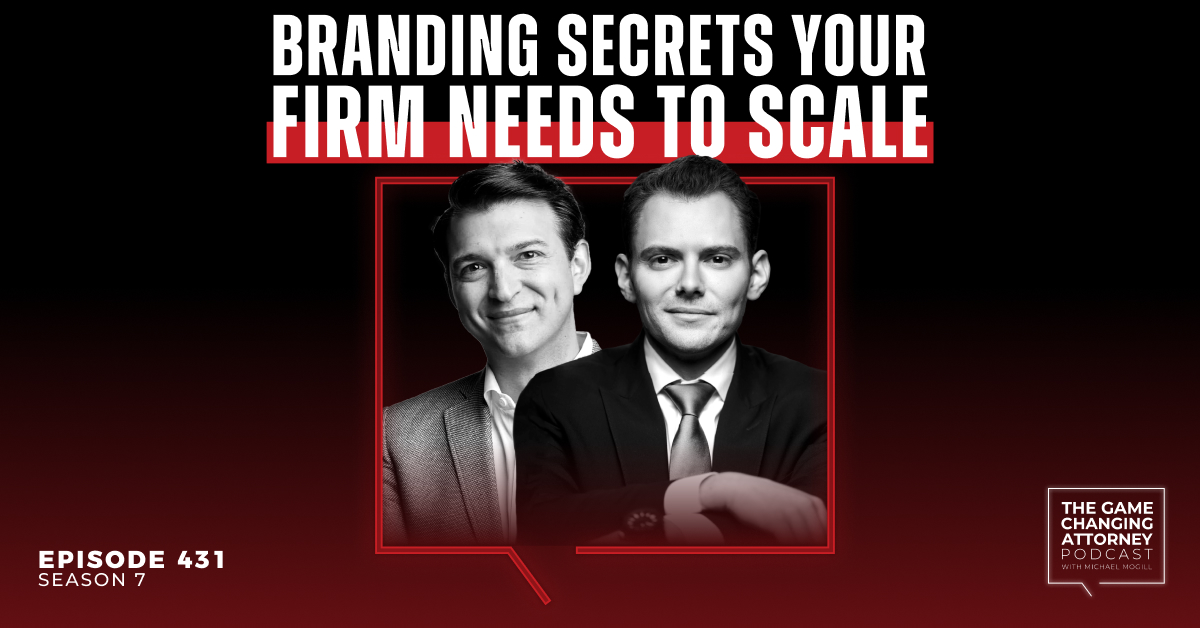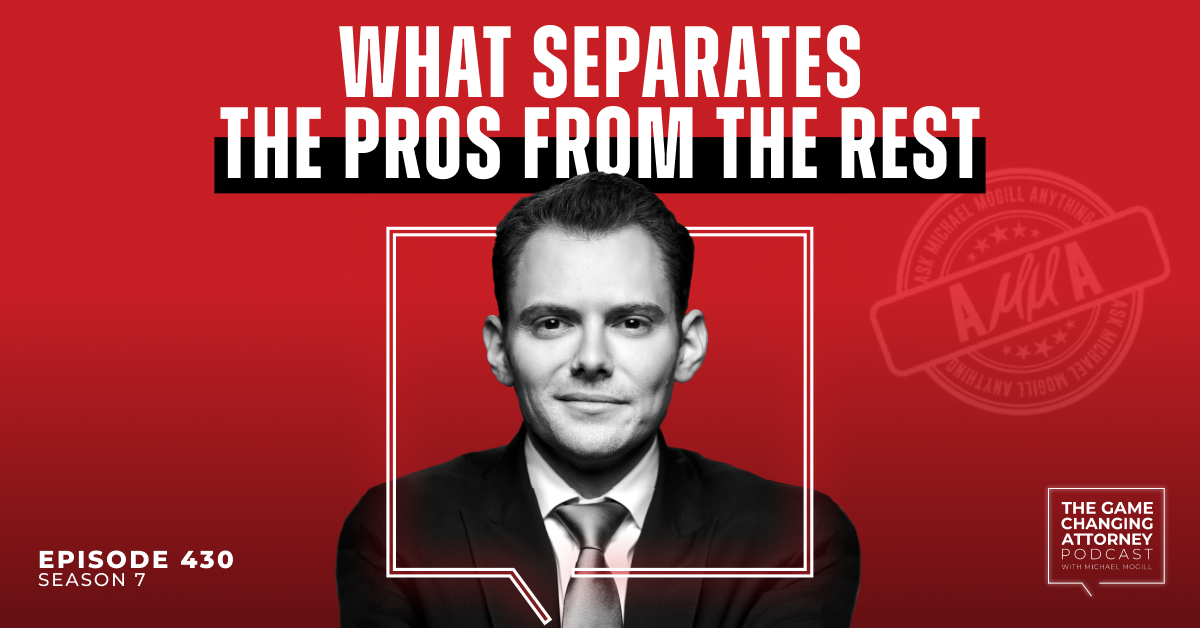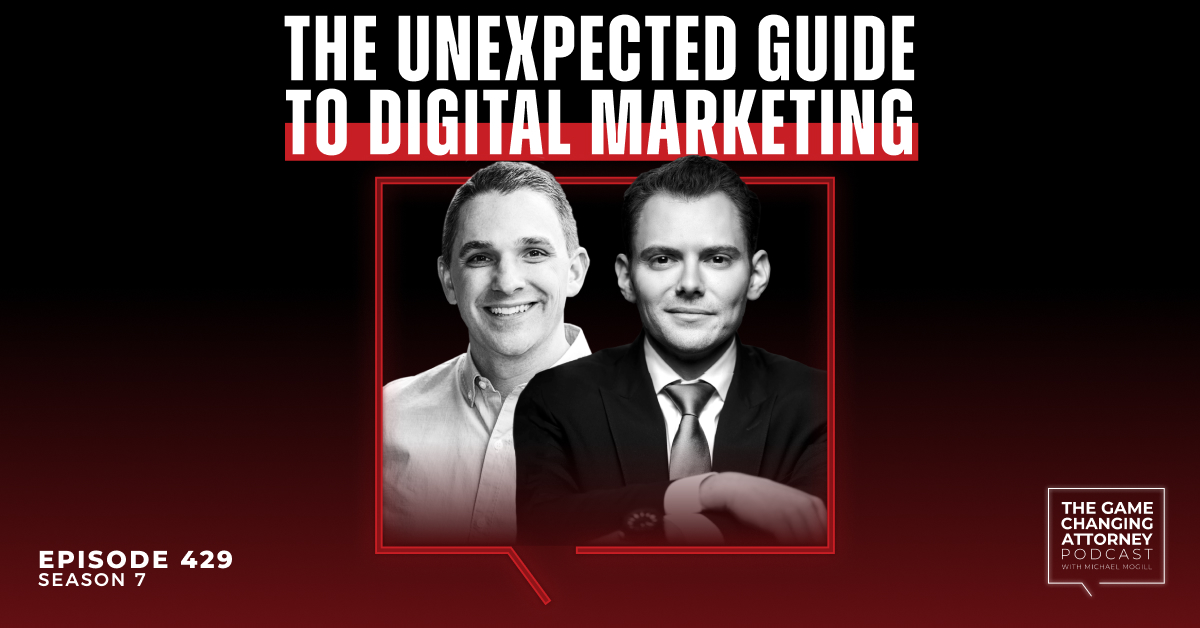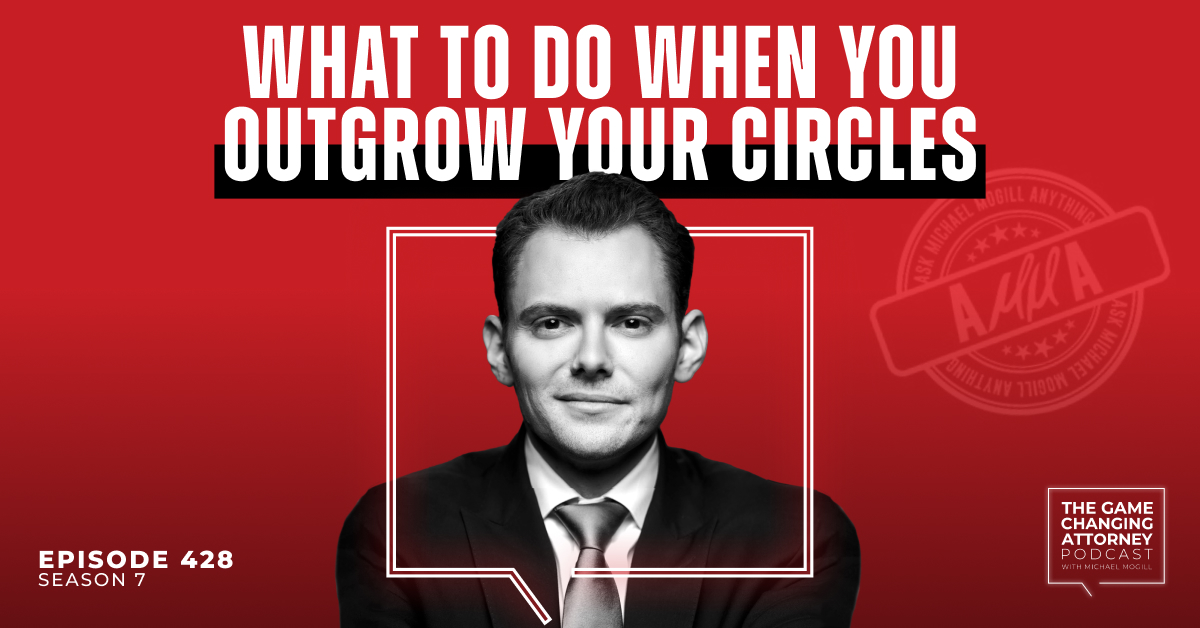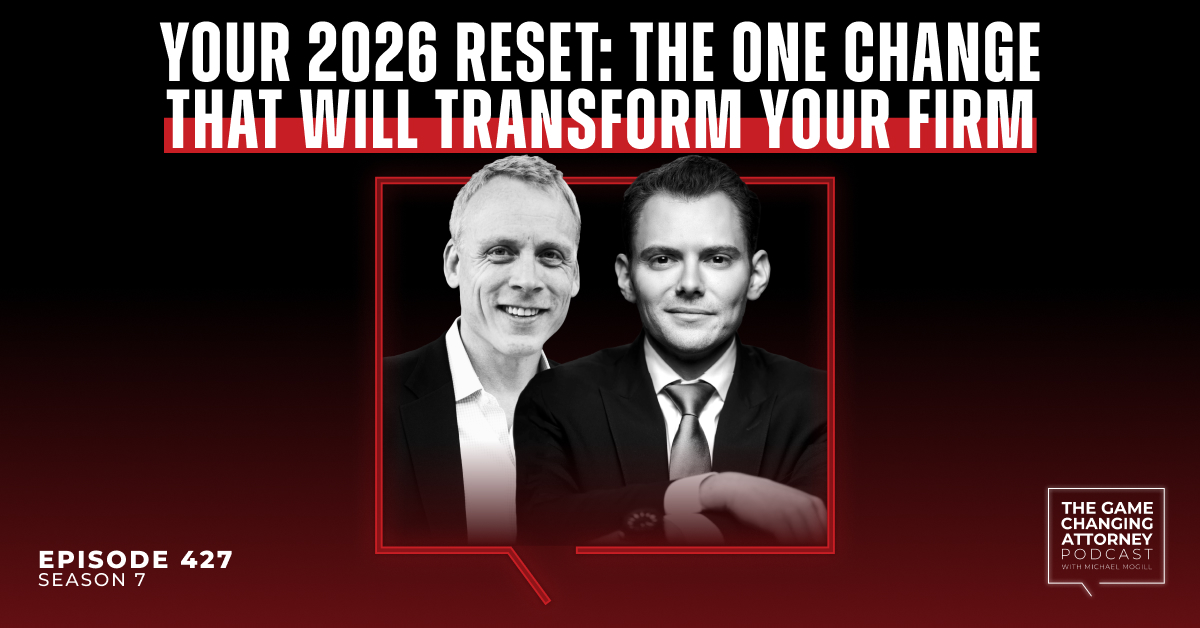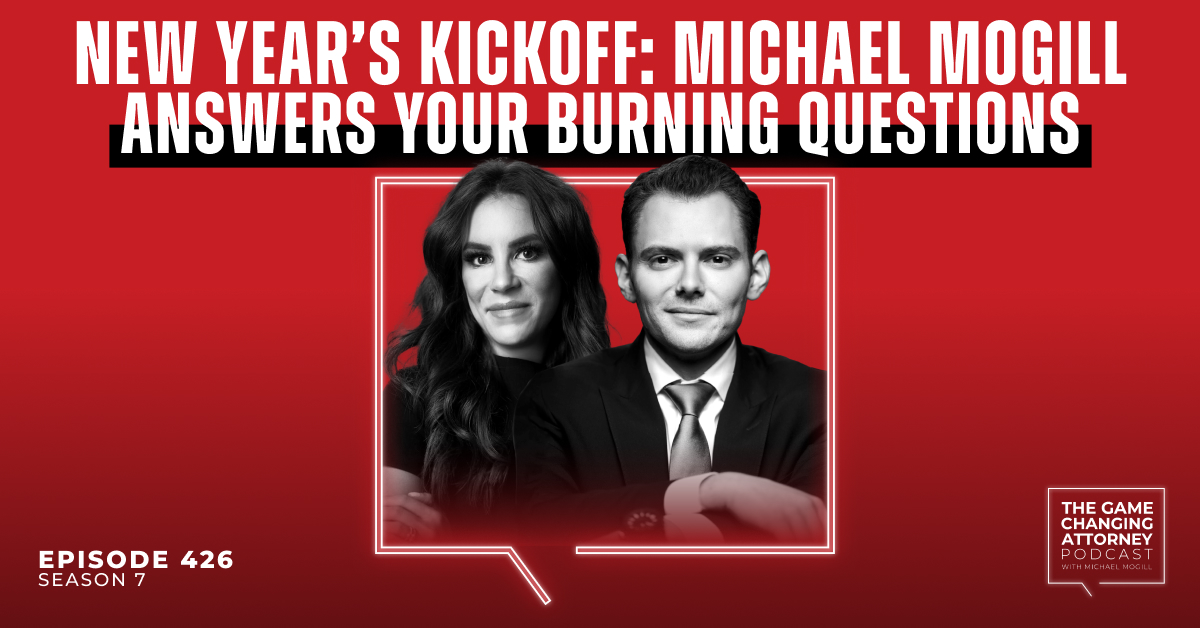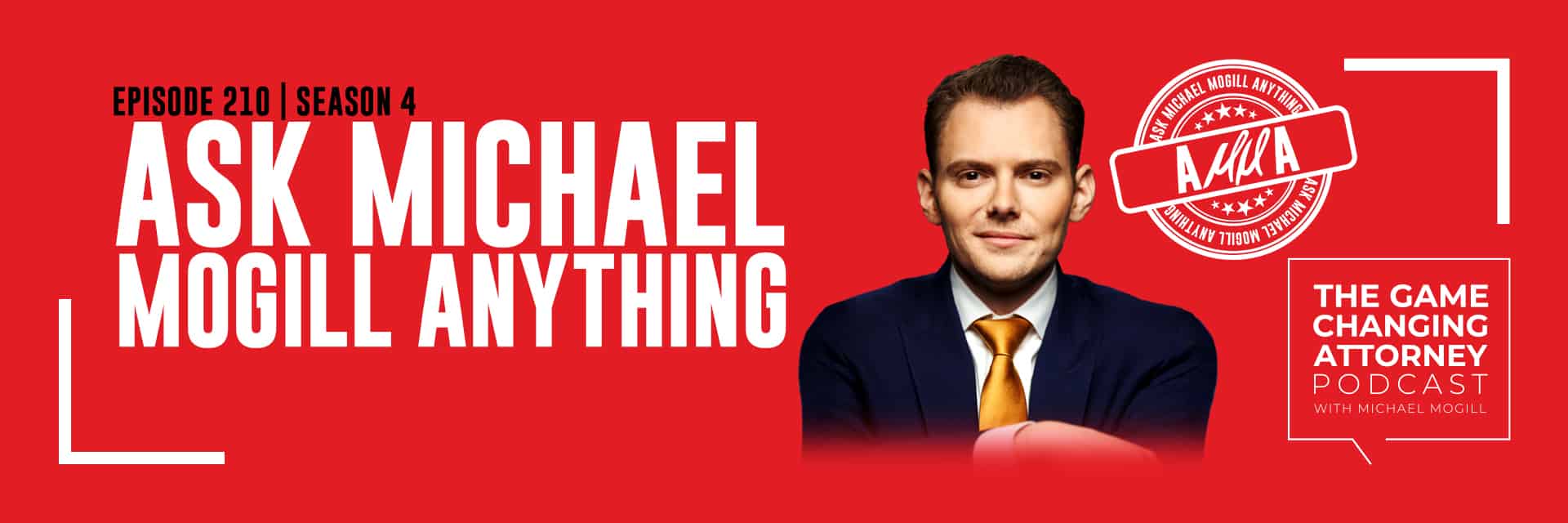
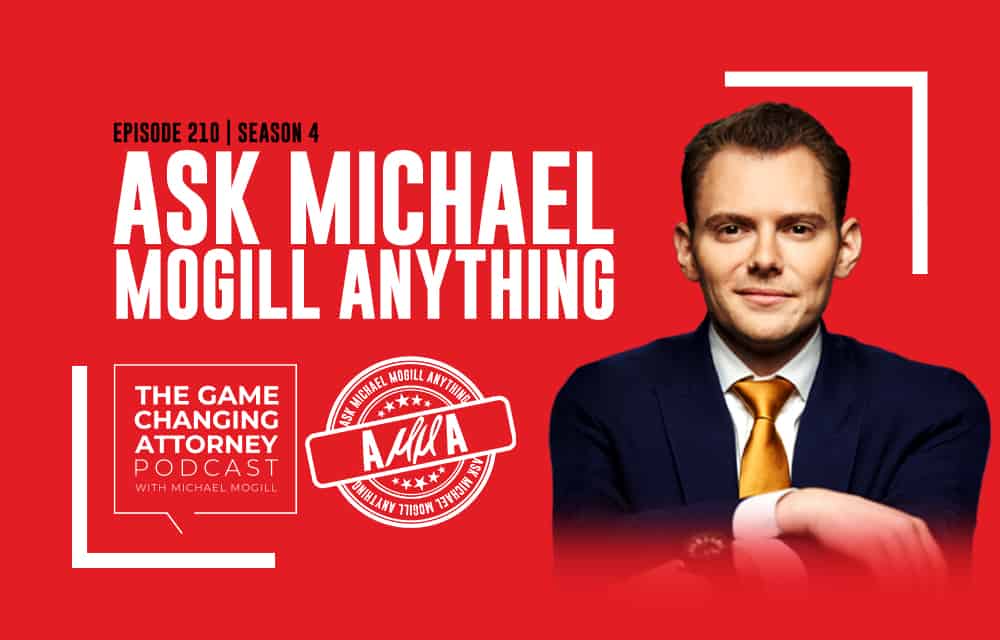
Episode 210 — AMMA — Failure Isn’t Final: Lessons Learned From Setbacks and Struggles
Failure is an inevitable part of life — especially for an entrepreneur.
In this episode of The Game Changing Attorney Podcast, Crisp Founder & CEO Michael Mogill explores the lessons he’s gained from failure and how you can apply them to your own leadership as well as your team’s growth.
He’ll discuss:
- How to bounce back from setbacks and build resilience
- The personal and professional failures that have been blessings in disguise
- What he learned from the 21 rejections that led to Crisp’s first client
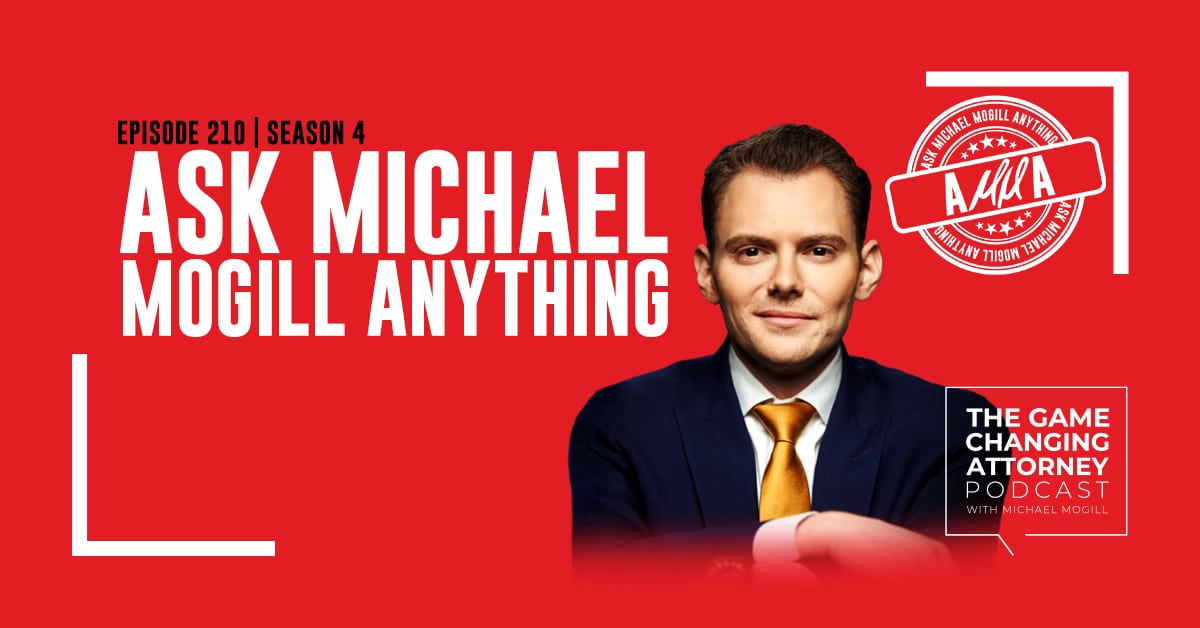
Listen & Subscribe
Show Notes:
Why some people get back up after setbacks. “Our mindset is the lens through which we see the world. That is the way in which we interpret information. Some people see setbacks as obstacles and bad things, and other people see setbacks as opportunities for growth and learning and change. Some people believe they are stuck with their existing capabilities, skills, and IQ and that they’ve just been dealt the hand that they’ve been dealt. Others believe that the mind is malleable and they can develop their skills and capabilities and that anything that happens to them is really happening for them.”
Failures are learning opportunities. “You can help your team interpret some sort of ‘failure’ in a productive way. Let’s say there was some sort of decision that was made that led to an outcome that was not the desired outcome. You can look at that and say, at the very least, what is the data that we gained back? What is the lesson that we’ve learned here? Because you really don’t learn a whole lot from your successes, but you do learn a lot from setbacks. I often find that the most successful individuals long-term have also had the greatest amount of setbacks because they’ve also had the greatest amount of learning as a result. So if you start to reframe those things, then you create a culture where ‘failure’ is not seen as a negative thing.”
Hindsight is 20/20. “It’s easier to connect the dots backwards than it is forwards. If you can revisit a past situation and say, ‘Well, if it weren’t for that, then it wouldn’t have led to the next thing, the next thing, the next thing, and here I am today.’ Even the most negative things can be seen as ultimately positives.”
Life happens for you, not to you. “Would you be the leader that you are were it not for those situations that allowed you the opportunity to grow and develop? Say you want to become a patient person. One of the best ways to become a patient person is to be put in situations that try your patience. How do you develop certain skills and capabilities? You have to be put in environments that require you to develop those skills and capabilities.”
What I learned from every failure. “Every single one, now that I reflect on it in a very objective way, was an indicator to me saying, ‘You are not ready or you do not deserve this yet. You do not have these skills. You do not have the capabilities. You are not worthy.’ When we fail, there will be people who take a lesson the wrong way. They don’t actually gain the lesson from it. They start to blame external environments. They say it’s not fair or they basically victimize themselves: This is unfortunate. This is the sad reality for them. This is bad luck. They did not have the conditions they needed. Somebody else was lucky or somebody else was dealt a better hand. Whatever. But if you take the true lesson away from this, it is really that when you do not get what you want, you are not ready for it yet.”
EPISODE RESOURCES & REFERENCES
Carol Dweck
Thomas Edison
Chris Voss
Crisp
Wayne Gretzky
Connect with Michael
- Text directly at 404-531-7691
